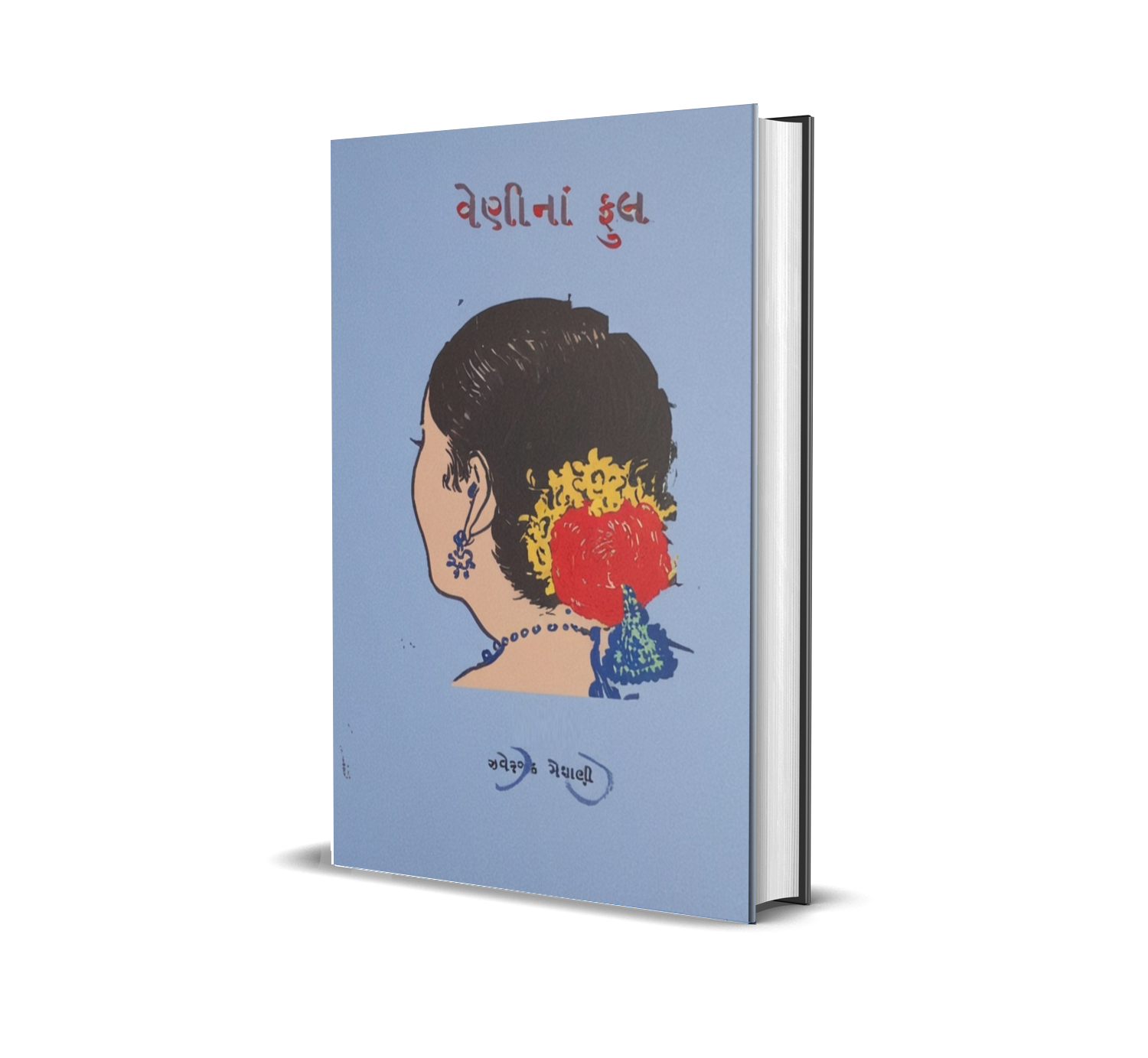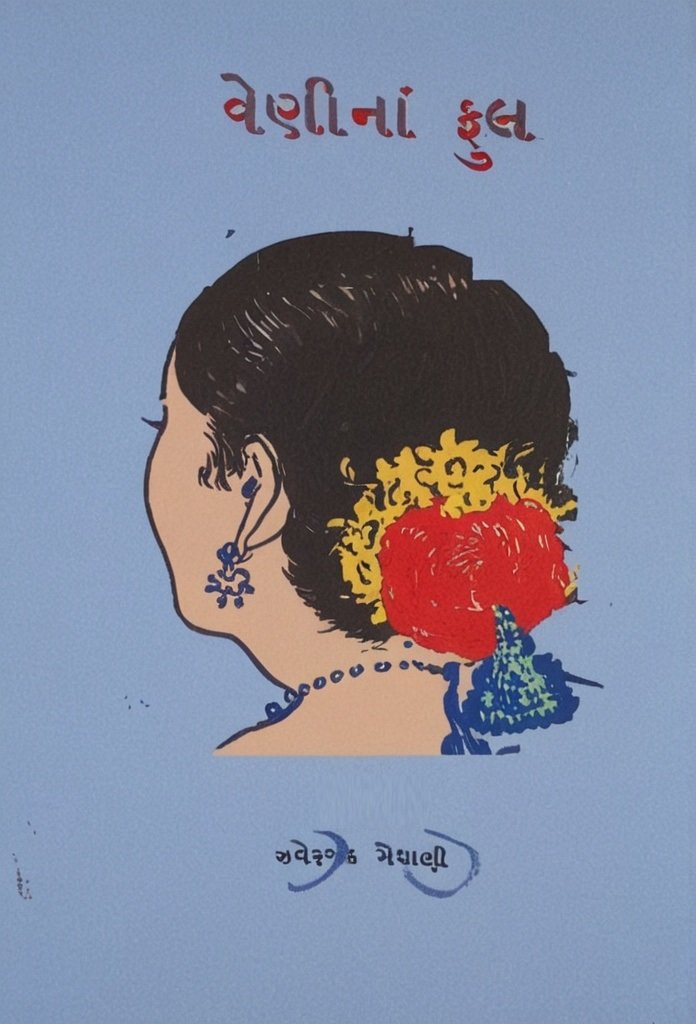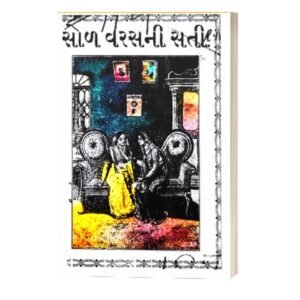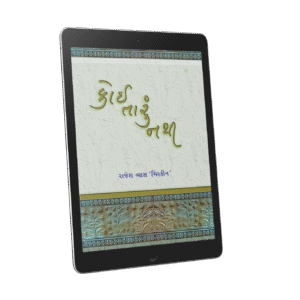Description
Veni Na Phool (વેણીનાં ફૂલ): The Blossoming of a National Poet’s Love Song to Childhood, Nature, and Gujarat
Step into the vibrant world of early 20th-century Gujarat, a land pulsating with the spirit of the freedom struggle and a rich, oral folk tradition. It is in this fertile cultural soil that Veni Na Phool (વેણીનાં ફૂલ)—translated as “Flowers in the Braid”—first blossomed in 1926. This is not merely a book of poems; it is a cherished cultural artifact, the debut poetic masterpiece of Jhaverchand Meghani, a man who would become the soul of Gujarat and earn the revered title of “Raashtreeya Shaayar” (National Poet) from Mahatma Gandhi himself.
More than just verses for the young, Veni Na Phool is a gateway to innocence, a celebration of the natural world, and a gentle introduction to the values that define a civilization. Meghani, already a respected journalist and folklorist, turned to poetry with a mission: to craft literature that was not dictated by British curricula but sprang from the very heart of the Indian experience. He wrote for the child in Gujarati, in the language of their homes and fields, filling a void with verses that were authentically their own.
The Man Behind the Verse: Jhaverchand Meghani
To understand Veni Na Phool is to understand its creator. Born in 1896 in the small town of Chotila, Meghani was immersed in the sights and sounds of Saurashtra-the rhythm of folk songs (Lokgeets), the grandeur of folk epics (Prabhatiyun), and the poignant tales of valor and tragedy. After his education in Bombay, he returned to his roots, not as a mere observer, but as a devoted archivist. He traveled from village to village, sitting with elders, collecting the fast-disappearing stories, ballads, and folklore of the common people. This work culminated in his monumental series, Saurashtra Ni Rasdhar (The Melodies of Saurashtra), a collection that single-handedly preserved a vast swathe of Gujarati folk culture.
It was this deep connection to the land and its people that he poured into Veni Na Phool. The collection is a beautiful fusion of his scholarly dedication to tradition and his heartfelt desire to create something new and beautiful for the next generation.
A Tapestry of Themes: What Blooms Within “Veni Na Phool”?
The poems in this collection are like the flowers its title promises—varied, colorful, fragrant, and delicate. They are carefully woven together to appeal to a child’s sense of wonder while instilling a deep sense of cultural pride.
-
The Celebration of Nature and the Rural Landscape: Meghani’s verses are drenched in the imagery of the Gujarati countryside. He writes of the first monsoon showers kissing the parched earth, the flight of birds at dusk, the swaying fields of crops, and the quiet majesty of the rivers. He personifies elements of nature, making them friends and companions to the child reader, fostering a sense of kinship with the environment.
-
Moral Foundations and Simple Virtues: True to the Indian tradition of Bal Sahitya (children’s literature), the poems are not merely descriptive; they are instructive. They subtly and beautifully impart lessons on honesty, courage, kindness, respect for elders, hard work, and compassion. These lessons are never heavy-handed but are instead woven into narratives about a farmer’s dedication, a mother’s love, or an animal’s loyalty.
-
Patriotism and Cultural Identity: Written during the peak of the Indian independence movement, the collection is imbued with a soft, yet powerful, patriotic fervor. It is a patriotism not of loud slogans, but of deep love for the motherland—its soil, its languages, its festivals (like Uttarayan and Navratri), and its heroes. Meghani sought to build a generation that was proud of its heritage, and these poems are the building blocks of that pride.
-
Imagination and Folklore: Meghani’s background as a folklorist shines through. The poems often have the rhythmic, lyrical quality of folk songs, making them easy to memorize and recite. He draws from folk tales and local legends, connecting children to the collective storytelling memory of their culture.
A Literary and Cultural Milestone
The publication of Veni Na Phool was a landmark event in Gujarati literature. It elevated children’s poetry to a serious art form. Before this, much of children’s reading material was either translated from English or was overly simplistic. Meghani proved that poetry for the young could be both artistically profound and deeply rooted in native soil. It provided a blueprint for future writers on how to speak to children without talking down to them.
The book’s language is simple yet powerful, melodic yet direct. It is designed to be read aloud, to be performed, to be shared between generations. For decades, poems from Veni Na Phool have been recited in school annual days, sung in gatherings, and passed down from grandparents to grandchildren. They are an integral part of the cultural upbringing of a Gujarati child.
A Legacy That Endures
Veni Na Phool is more than a book; it is a beloved heirloom. It represents the first flowering of Meghani’s poetic genius, which would later expand into powerful patriotic anthems that stirred a nation to action and poignant ballads that brought tears to the eyes of millions.
For the modern reader, it offers a poignant glimpse into a specific time and place, yet its themes are universal and timeless. It is a gift for anyone who wishes to:
-
Introduce a child to the beauty of the Gujarati language and its poetic traditions.
-
Reconnect with the nostalgic simplicity of their own childhood.
-
Understand the cultural and literary history of Gujarat.
-
Experience the work of a man who was not just a writer, but a national treasure.
Open the pages of Veni Na Phool and let Jhaverchand Meghani guide you through a world where every flower has a story, every season a song, and every child is a cherished inheritor of a great and beautiful culture. This is where a national poet began his journey—by planting a garden for children, a garden that continues to bloom, forever.






Reviews
There are no reviews yet.